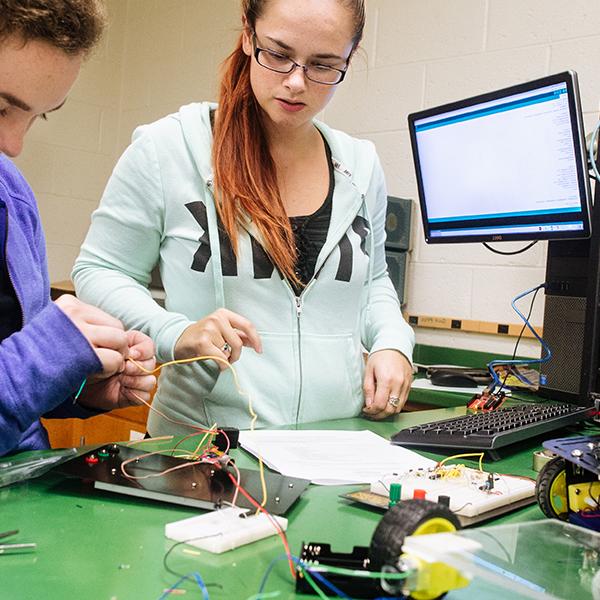Innovate the engineering field and explore your career potential by earning your master's degree in electrical engineering. Apply advanced mathematical and physical principles to electronic and computer-based devices and systems under the practical insight of expert faculty members.
Upcoming events to be announced.
Program Snapshot
| Program Type | Format | Credit Hours |
|---|---|---|
| Master's Degree | On Campus | 30 |
Why Study Electrical Engineering at Wilkes?
Benefit from hands-on experiences unparalleled at other institutions in the region. Practical coursework in our electrical engineering master's program means concepts can be implemented right away so you can make an immediate impact on your company and organization. Wilkes students benefit from the guidance and support of our faculty experts, many who still work in the field they teach. Additionally, within our program, you'll have the opportunity to design a project or thesis experience that aligns with your career goals.
What Will You Learn in our Electrical Engineering Program?
- Learn to apply advanced mathematical and physical principles to electronic and computer-based devices and systems.
- Explore communications and navigational systems; computers and digital systems; microelectronics; microwaves and antennas; power and control systems; and software engineering.
- Culminate your academic experience through a research thesis or final project where you can pursue topics of professional interest.



